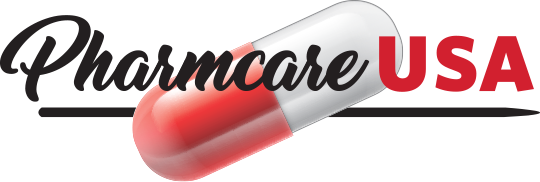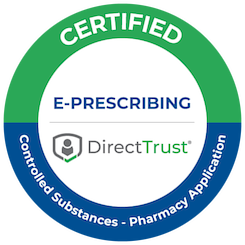Understanding the Importance of Proper Medication Disposal
As an experienced healthcare professional working in long term care, I cannot stress enough the importance of proper medication disposal. When medications are not disposed of correctly, they can pose serious threats to both human health and the environment. Improper disposal can lead to accidental ingestion, overdose, and even death. Medications can also pollute our waterways, contaminating drinking water and harming wildlife.
In assisted living and long term care environments, the stakes are even higher. Our residents are often frail, with complex medical needs. The risk of accidental ingestion is extremely high, and the consequences can be fatal. Moreover, the volume of medications used in these settings makes them a significant source of potential environmental pollution.
In addition to these health and environmental risks, there are also legal and regulatory implications. Non-compliance with medication disposal requirements can result in hefty fines and penalties, damage to reputation, and even loss of license. Thus, understanding and implementing proper medication disposal practices is not just a matter of good practice; it is a legal and ethical obligation.
Types of Medication Disposal in Long Term Care and Assisted Living Environments
In nursing homes and assisted living environments, medication disposal typically falls into three main categories: disposal in the regular trash, flushing down the toilet or sink, and take-back programs. Each method has its pros and cons, and the best method depends on the type of medication, local regulations, and the facility’s policies and procedures.
Disposal in the regular trash is often the simplest and most convenient method. However, it carries a high risk of accidental ingestion, especially if the medication is not properly sealed or disguised. Moreover, medications disposed of in this way can end up in landfills, where they can leach into groundwater.
Flushing medications down the toilet or sink is another common method. This method eliminates the risk of accidental ingestion, but it poses significant environmental risks. Many medications are not removed by wastewater treatment processes and can end up in our rivers and oceans.
Take-back programs are increasingly being promoted as the safest and most environmentally friendly method of medication disposal. These programs collect unused or expired medications and dispose of them safely and responsibly. However, they require a level of organization and commitment that can be challenging in busy long term care environments.
Requirements for Medication Disposal in Nursing Homes and Assisted Living Facilities
In the United States, medication disposal in nursing homes and assisted living facilities is regulated by several federal and state agencies. The primary federal agency is the Drug Enforcement Administration (DEA), which enforces the Controlled Substances Act. The Act sets strict requirements for the storage, handling, and disposal of controlled substances, including many common medications.
In addition to the DEA, the Environmental Protection Agency (EPA) also regulates medication disposal under the Resource Conservation and Recovery Act (RCRA). This Act classifies certain medications as hazardous waste and sets specific requirements for their disposal.
At the state level, regulations vary widely. Some states have strict rules that exceed federal requirements, while others have more lenient rules. It is essential for long term care and assisted living facilities to know and understand both federal and state regulations to ensure compliance.
The Consequences of Non-Compliance with Medication Disposal Regulations
Non-compliance with medication disposal regulations can have serious consequences. At the federal level, penalties can include hefty fines, imprisonment, and loss of license. At the state level, penalties can include fines, disciplinary actions, and additional regulatory scrutiny.
In addition to these legal and regulatory consequences, non-compliance can also have reputational and financial consequences. News of regulatory violations can damage a facility’s reputation, making it harder to attract and retain residents. It can also lead to increased insurance premiums and legal costs.
Beyond these immediate consequences, non-compliance can also have long-term effects. It can lead to a culture of non-compliance, where staff become complacent and disregard regulations. This can further increase the risk of regulatory violations and harm to residents.
The Process of Medication Regimen Review in Long Term Care Environments
A medication regimen review is a critical component of medication management in long term care environments. It involves a comprehensive review of a resident’s medications to ensure they are appropriate, effective, safe, and able to be taken as intended.
The review is typically conducted by a pharmacist or other healthcare professional. It involves a thorough review of the resident’s medical history, current medications, and any potential drug interactions or side effects. The goal is to optimize the resident’s medication regimen and minimize the risk of medication-related problems.
The medication regimen review process also plays a crucial role in medication disposal. During the review, the healthcare professional identifies any unused or expired medications that need to be disposed of. They also ensure that the disposal is done in accordance with federal and state regulations.
Technology and Software Solutions for Medication Disposal
In today’s digital age, technology and software solutions are increasingly being used to streamline and improve medication disposal practices in long term care and assisted living facilities. These solutions can automate many of the tasks involved in medication disposal, reducing the risk of errors and non-compliance.
For example, some software programs can track medication usage and automatically generate disposal reports. These reports can help facilities monitor their medication disposal practices and identify any areas of concern. They can also provide evidence of compliance in the event of a regulatory inspection.
Other technology solutions include automated medication dispensing systems. These systems can securely store medications and dispense them as needed, reducing the risk of accidental ingestion or theft. They can also track medication usage and automatically alert staff when a medication needs to be disposed of.
Consulting Services for Medication Disposal in Long Term Care and Assisted Living Facilities
Given the complexity of medication disposal regulations and the serious consequences of non-compliance, many long term care and assisted living facilities are turning to consulting services for help. These services can provide expert advice and guidance on all aspects of medication disposal, from understanding regulations to implementing best practices.
Consulting services can also provide training for staff. This training can cover everything from how to dispose of medications properly to how to document disposal activities. It can also cover how to handle special situations, such as the disposal of controlled substances or hazardous waste.
In addition to training, consulting services can also provide ongoing support. This can include regular audits to ensure compliance, assistance with regulatory inspections, and help with developing and updating policies and procedures.
Best Practices for Medication Disposal in Assisted Living and Long Term Care Environments
Based on my experience, there are several best practices that long term care and assisted living facilities can follow to ensure proper medication disposal. Firstly, it’s crucial to have clear, written policies and procedures. These should cover all aspects of medication disposal, from who is responsible for disposal to how disposal should be documented.
Secondly, regular training for staff is essential. This training should cover the facility’s policies and procedures, as well as federal and state regulations. It should also include practical training on how to dispose of medications properly.
Thirdly, regular audits are crucial. These audits should check that medications are being disposed of correctly and that disposal activities are being properly documented. They should also check that the facility is complying with all relevant regulations.
The Future of Medication Disposal: Improvements and Advancements
Looking to the future, I anticipate several improvements and advancements in medication disposal in long term care and assisted living environments. Technology and software solutions will continue to evolve, offering new ways to streamline and improve medication disposal practices.
Regulations will also continue to evolve, reflecting advances in our understanding of the environmental and health risks associated with improper medication disposal. This will likely lead to stricter requirements for medication disposal, as well as increased enforcement of existing regulations.
Finally, I anticipate increased collaboration between long term care and assisted living facilities, regulatory agencies, and other stakeholders. This collaboration will drive innovation and best practice sharing, leading to better medication disposal practices across the industry.
Conclusion: The Critical Role of Proper Medication Disposal Practices
In conclusion, proper medication disposal practices play a critical role in long term care and assisted living environments. They protect our residents’ health, safeguard our environment, and ensure compliance with legal and regulatory requirements. By understanding and implementing these practices, we can provide the highest quality of care to our residents and fulfill our ethical and legal obligations.
Pharmcare USA’s long term care and assisted living facility consultants can help ensure that your facility is compliant with more than just medication. Schedule a consultation with our nursing home consultants today.




